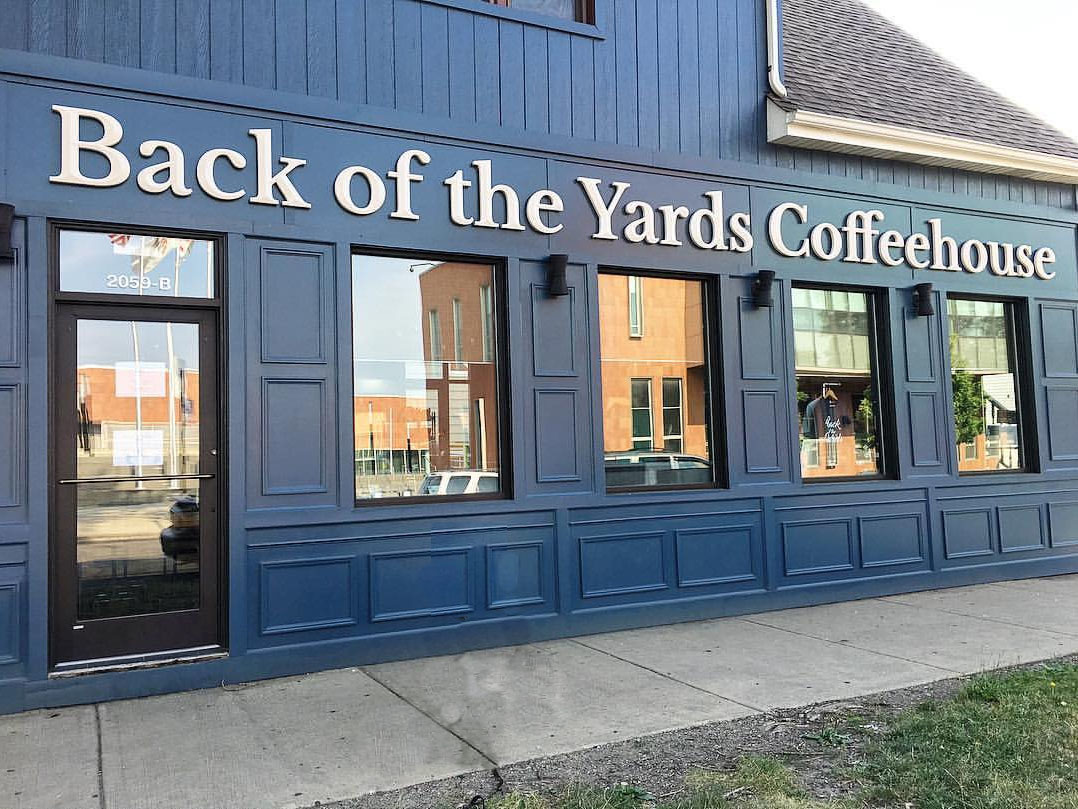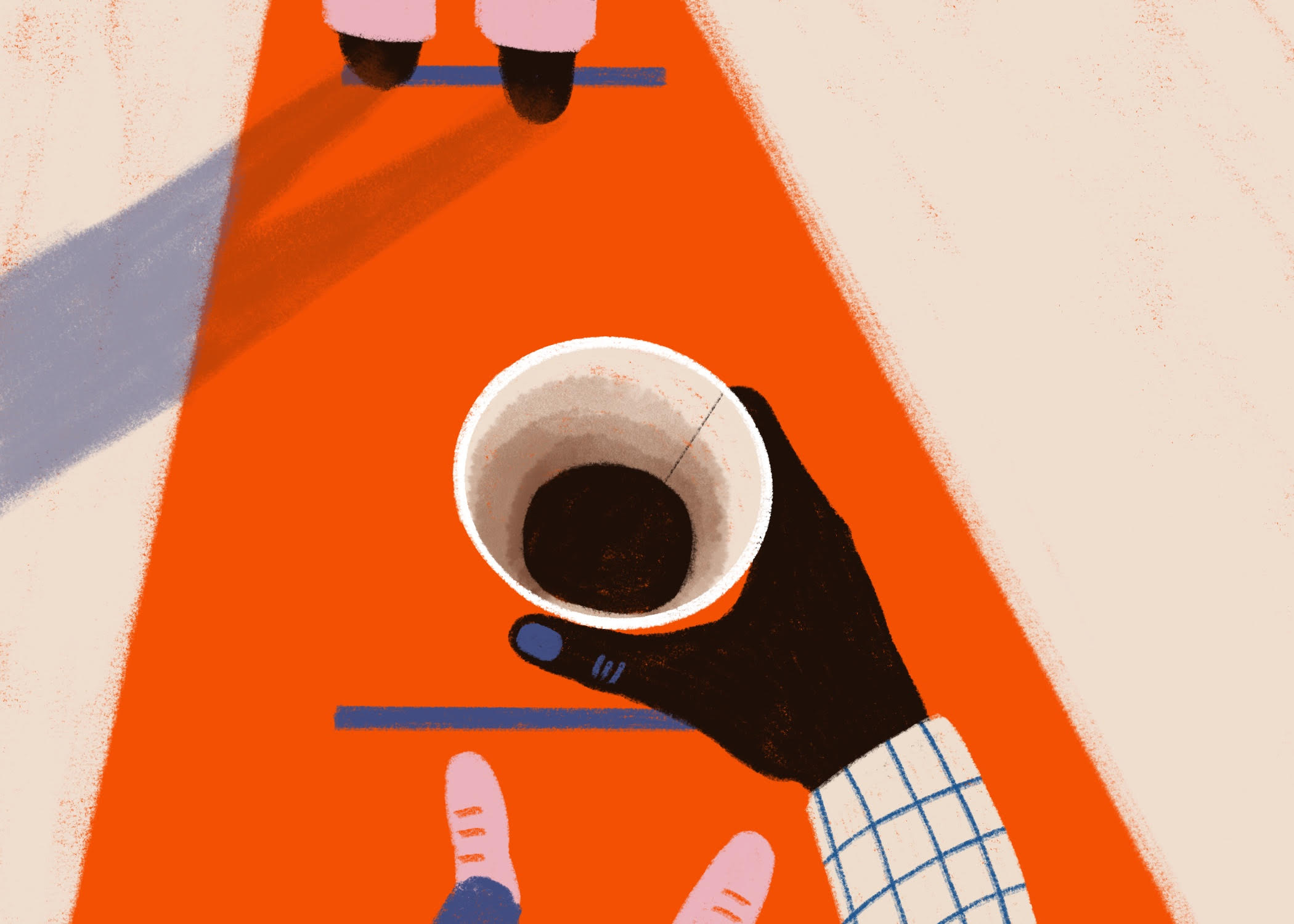On April 16, the Small Business Administration (SBA) announced that the $350 billion in forgivable, low-interest loans made available through the Paycheck Protection Program (PPP) had been exhausted in just two weeks. From the beginning, the federal program was marred by problems, from some banks’ refusal to participate to special guidelines favoring mid-sized and large corporate franchises.
While the publicly-traded restaurant group behind Ruth’s Chris Steak House, for example, received $20 million just four days after the application opened, truly small businesses, like the coffeehouse I own in Back of the Yards, were left scrambling in the dark. (Ruth’s Chris Steak House, along with a few other companies, returned their loans after a public outcry.) And while a second round of applications has opened this week, small business owners expect the process to be as difficult to navigate as the first time.
When the PPP was first announced, we were ready. We made sure we met the eligibility criteria, gathered our financial documents and applied as soon as the bank could give us the form and the instructions. We normally bank with two institutions and were advised through informational webinars that we should apply through both banks and settle with whichever one could get the ball rolling. But neither bank was able to submit an application on our behalf as they had slow response times, were not clear about the paperwork that was needed, or their online portals were not prepared to handle the application.
My business partner and I are hearing the same story from all the neighborhood small business owners we know, non-profit enterprises included. For other colleagues, the PPP was never an option because they are immigrants who aren’t eligible for government relief. But Grecias Bakery in Gage Park, Vista Hermosa Restaurant in Little Village, The Law Offices of Hugo Ortiz in Back of the Yards, and Bright Futures Chiropractic in Pilsen: all of us went to our respective banks eager to fill out the required forms and still got the runaround. We are left with more questions than answers.

The New York Times reported on April 22 that some of the biggest banks in the country, like Chase, Citibank, and U.S. Bank, placed their wealthiest clients at the top of the stack and dragged their feet with the applications from their smaller customers.
Firms with fewer than twenty employees account for eighty-eight percent of U.S. businesses. Yet data released by the SBA shows that almost seventy percent of the funds that were awarded were loans between $350,000 to $10 million and went to firms with payrolls between $140,000 and $4 million a month (or $1.7 million-$48 million a year). Meanwhile, your typical small businesses with payrolls less than $60,000 a month (or $720,000 a year), who everyone imagined would be the target of these loans, only received seventeen percent of the funds that were awarded.
Why aren’t we getting the support? Is it because we don’t have lobbyists who can grease the wheels for us? After all the criticism of our government for bailing out the big banks responsible for the crash in 2008, I was hopeful that this time Congress would do a better job of sending money to the small businesses who employ nearly half the nation’s workers and are engines of new jobs. Boy, was I wrong. The government used the guise of supporting small businesses in order to funnel money into the pockets of corporations yet again, right under our noses. Both Republicans and Democrats share the blame here.
Last week, the President signed a bill approving $320 billion for another round of the PPP, and the SBA resumed accepting applications from approved lenders on Monday morning. However, the government needs to be more specific on what qualifies as a small business and prioritize those that employ fewer than twenty employees. They specifically need to work out a set-aside for microbusinesses that make up seventy-five percent of private-sector employers. Congress needs to recognize that it is not addressing the needs of those for whom this legislation was intended and just adding more money without these guidelines will only exacerbate the problem. And if the federal government fails to act in favor of mom-and-pop shops, the banks need to be equitable in their customer service and dedicate funds for small and microbusinesses.
So what now? What else can we do? Neighborhood business owners can apply for a myriad of small loans and grants being offered by other businesses, philanthropy groups and nonprofits, but it can be a daunting task. Many of these loans and grants are in quantities of $5,000-$10,000, but can be a challenge to microbusinesses with few resources that are still trying to operate their storefronts during the pandemic. But the bulk of the work of gathering documents and writing narratives still has to be done by you.
To that end, on Tuesday, the city Department of Business Affairs and Consumer Protection launched a $5 million grant program for 1,000 microbusinesses in South, West, Northwest, and Far North Side neighborhoods that have four or fewer employees and less than $250,000 annual revenue. The fund will be distributed through a lottery in $5,000 one-time grants. The bilingual applications can be found at chicago.gov/recoverygrant and close on Monday, May 4 at 5pm.
Now, more than ever, we need to start to use the power of our dollars to support those businesses that are integral to our communities. Large corporations like Walmart, Starbucks, and McDonald’s will survive, and if they don’t, history has shown that the government will bail them out. But small businesses like mine will not survive without your support. While the money you spend at big-box stores leaves the neighborhood and goes up the corporate chain, every dollar you spend in locally owned businesses stays circulating in the community and can even help feed a family. Your patronage allows the economic impact to echo here.
During a national crisis is the right time to support your local independent mom-and-pops, your neighborhood coffee shops and corner stores. The majority of these small businesses are owned by your neighbors. They not only contribute to your property taxes, but also hire locally and give back to the community. They need your support to keep workers employed and neighborhoods running.
Update, April 28, 2020: This piece has been updated to include the City of Chicago’s microbusiness grant lottery.
Jesse Iñiguez is the co-founder and director of operations of Back of the Yards Coffeehouse. He is a lifelong resident and community advocate in the Back of the Yards neighborhood. This is his first contribution to the Weekly.

